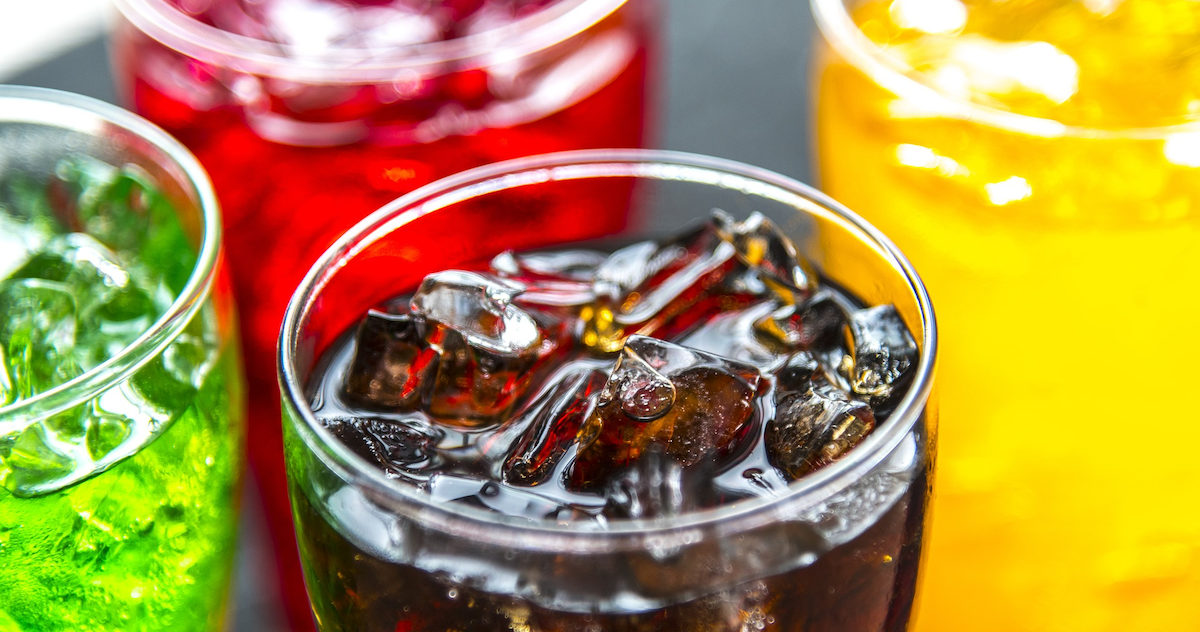Have you ever wondered if that daily soda or sweetened coffee habit is doing more than just expanding your waistline? While we often focus on the obvious health risks of sugary drinks like weight gain, diabetes, and dental problems, there’s a less-discussed side effect that might surprise you: hair loss.
The health of your hair is a direct reflection of your body’s overall well-being. What you eat and drink provides the essential building blocks for strong, healthy hair. When your diet is out of balance, your hair is often one of the first things to show signs of distress.
This article will explore the surprising connection between sugary drinks and hair loss, explaining the science behind why that sweet habit might be causing your hair to thin.
Beyond Calories: How Sugar Impacts Your Body
When you consume sugary drinks like soda, fruit juice, or energy drinks, your body experiences a rapid sugar spike. This isn’t just a simple energy boost; it sets off a chain reaction that can negatively impact your entire system, including your hair follicles.
Here’s a breakdown of the key ways sugar can contribute to hair loss:
1. The Insulin Rollercoaster and Hormonal Imbalance
When you consume sugar, your body releases insulin to manage the sudden rise in blood sugar. Over time, a diet high in sugar can lead to insulin resistance, a condition where your cells stop responding to insulin effectively.
- The PCOS Connection: Insulin resistance is a major factor in the development of Polycystic Ovary Syndrome (PCOS) in women. A common symptom of PCOS is hormonal imbalance, particularly an increase in male hormones called androgens. High levels of androgens can cause androgenetic alopecia, a type of hair loss characterized by thinning hair on the scalp.
- DHT and Hair Follicle Shrinkage: High insulin levels can also lead to an increase in dihydrotestosterone (DHT), a hormone that is a major culprit in male-pattern baldness. DHT can shrink hair follicles, making them produce thinner, weaker hair until they eventually stop producing hair altogether.
2. The Inflammation Factor: A Hostile Environment for Hair Growth
Chronic, low-grade inflammation is a silent but destructive force in the body. It’s often linked to a diet high in processed foods and sugary drinks.
- Inflamed Scalp: Just as inflammation can affect your joints or organs, it can also affect your scalp. An inflamed scalp is not a healthy environment for hair follicles. It can disrupt the natural hair growth cycle, leading to premature hair shedding.
- Nutrient Starvation: Inflammation can also interfere with your body’s ability to absorb vital nutrients. This leads us to our next point…
3. Nutrient Depletion: Stealing from Your Hair’s “Food Supply”
Hair follicles are essentially tiny factories that need a steady supply of nutrients to function properly. Sugary drinks are a source of “empty calories”—they provide energy but are completely devoid of the vitamins and minerals that your body, and your hair, needs.
A diet heavy in sugar can lead to deficiencies in key nutrients for hair health, including:
- Iron: Iron is crucial for transporting oxygen to your hair follicles. A lack of iron can lead to hair loss.
- Zinc: Zinc helps with tissue growth and repair, and a deficiency can lead to hair thinning.
- B Vitamins: B vitamins, particularly biotin, are essential for cell metabolism and creating healthy hair.
When your body is constantly dealing with sugar spikes and inflammation, it prioritizes more vital functions over hair growth. Your hair follicles essentially get put on a starvation diet, and the result is hair that is weak, brittle, and prone to falling out.
4. The Glycation Effect: Making Hair Brittle
When excess sugar in your bloodstream attaches to proteins and fats, it forms harmful compounds called Advanced Glycation End products (AGEs). This process, known as glycation, can cause damage throughout the body.
- Collagen Damage: Glycation can damage collagen and elastin, the proteins that provide structure and strength to your skin and hair follicles. When these proteins are compromised, your hair becomes more brittle and susceptible to breakage.
Beyond the Sugary Drink: A Holistic Approach to Hair Health
The good news is that reducing your intake of sugary drinks is a powerful step towards improving your hair health. But to truly nourish your hair, a holistic approach is best.
- Hydrate with Water: Swap out that soda for water. Proper hydration is essential for overall health, including the health of your scalp.
- Eat a Nutrient-Rich Diet: Focus on a balanced diet filled with lean proteins, healthy fats, fruits, and vegetables. These foods provide the essential vitamins and minerals your hair needs to thrive.
- Manage Stress: Chronic stress can lead to hair loss, so find healthy ways to cope, such as exercise, meditation, or hobbies.
- Get Regular Exercise: Exercise improves blood circulation, which helps deliver nutrients and oxygen to your hair follicles.
Conclusion: Making the Switch for Thicker, Stronger Hair
The connection between sugary drinks and hair loss is not just a theory; it’s rooted in the science of how your body responds to sugar. From hormonal imbalances and inflammation to nutrient deficiencies and cellular damage, that sweet habit can create a hostile environment for your hair.
By making a conscious effort to cut back on sugary drinks and adopting a more nutrient-dense diet, you can give your hair the support it needs to grow strong and healthy. It’s a simple change that can lead to a world of difference, not just for your waistline, but for your hair and overall well-being.
